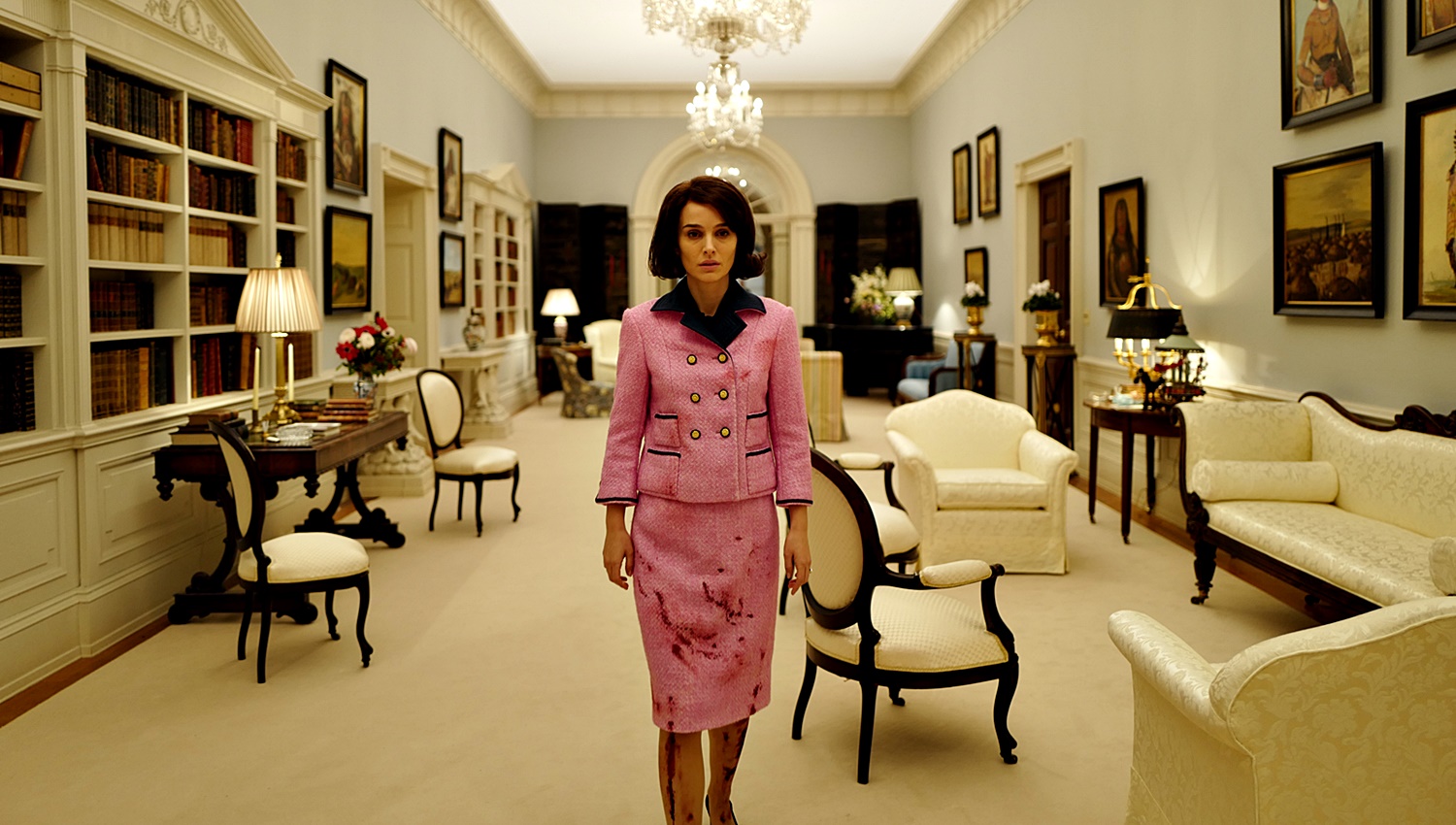
Jackie
Dustin Chase
The South American perspective of Jackie Kennedy is apparently similar to a horror movie seen through the eyes of director Pablo Larraín. In his first English language film, the 40-year-old surprisingly molds Jackie in the same structure of fellow Chilean director Alejandro Amenábar’s The Others (2001). The vicious editing choices paired with the savage musical score, reinforce Jackie as this unusual artistic chiller. Of course everything revolves around Oscar Winner Natalie Portman’s supernatural performance as iconic first lady. I didn’t think it was possible, but Portman tops her Black Swan (2010) achievement. Jackie is so much more than just a female performance vehicle, it unapologetically explores the off camera, behind the scenes perspective of Mrs. Kennedy, offering a vantage point unseen in cinema.
“A first lady must be ready to pack her suitcases. It’s inevitable,” Jackie says. When the president of the United States was shot and killed in Dallas, his wife lost more than a husband, she lost more than anyone else that day. Almost instantly Jackie (Portman) begins planning the funeral, even before Air Force One can return to Washington. She is far more concerned about her husband’s legacy than his killer. Bobby (Sarsgaard) tries to calm his sister-in-law but she refuses to cry or act the way those around her might expect. Weeks later she also refuses to offer up the details America wants to hear. She sits down with Life magazine’s Theodore H. White (Crudup) at the Kennedy compound to explain herself.
Portman’s performance is supernatural as the iconic first lady.
There is something about the way Larraín presents this story, it feels like we haven’t heard it before, and for a new generation, that might be the case. It’s beyond gripping the way he presents the innocent Mrs. Kennedy touring the white house in that much talked about TV Special. He juxtaposes her early moments with the now bitter and hollow woman who forcefully dictates, while puffing a cigarette, to the journalist. The flashbacks are articulately fragmented throughout the film, constantly relieving the hell Jackie faced that fateful day and those following. Portman’s performance can relate to Cate Blanchett’s in Blue Jasmine in the way both characters express physical and emotional grief due to loss of husband, status and relevance. Larraín’s effective use of extreme close up with Portman’s face throughout the film captures the raw and often unpredictable reactions she has. He also showcases the horrified looks of people around her as they systematically judge her for unorthodox grieving behavior.
Jackie feels like an art film, a foreign film, a horror movie, it’s hard to describe and dissect what it really is. One thing it’s not, is boring. Functioning at times like a thriller that is offering up information in place of action scenes. The supporting cast are well assembled, truly earning their title of support to Portman’s powerhouse performance. Sarsgaard (Blue Jasmine, The Magnificent Seven) especially good as the commanding brother, even telling the newly sworn President Johnson (John Carroll Lynch) to sit down in a moment of stern direction. Noah Oppenheim’s screenplay (which took top honors in Venice) isn’t afraid to expose Jackie’s flaws either. This is not some glorifying, idealistic portrait of the woman in the blood soaked pink skirt and bonnet, it goes way beyond that, bone deep.
Final Thought
Implementing startling horror movie ingredients, Pablo Larraín delivers a masterpiece.
